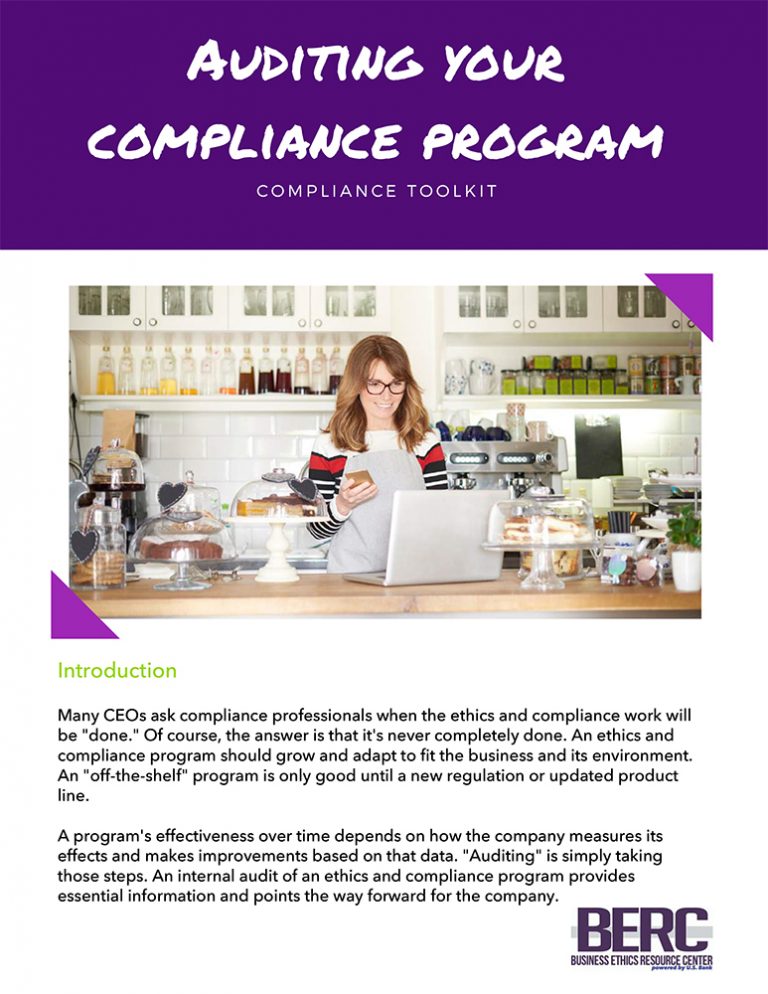Talking about ethics early and often is key to establishing a culture of integrity at your company.
Every company has some sort of on-boarding process for new employees, whether in formalized sessions or more relaxed introductions. New employees have to learn about key colleagues, the management chain, clients, rules and regulations, new technology and systems…the process can be daunting.
In that shuffle, particularly at smaller companies who may not have much excess staff time for on-boarding, it can be easy to leave ethics by the wayside. However, data from the World’s Most Ethical Companies® makes it clear that putting ethics up front is a key way to set a strong corporate culture.
Talk about ethics early and often

One of the simplest ways that you can embed ethical conduct in your corporate culture is simply to explicitly talk about it. Talking early and often about ethics can help avoid problems down the line. If employees understand that integrity is a core company value, they will be less likely to cut corners to meet business targets down the line.
New employee training should include information about the code of conduct, expectations of employees, and how to report ethics issues. (including anonymous methods, if available) The best codes of conduct include a letter from the CEO at the very front, explaining why ethical behavior matters to the company at every level.
Manager onboarding is vital
One of the key things learned from surveying the World’s Most Ethical Companies is that ethics onboarding isn’t just for new, entry-level hires: the best companies onboard managers, too.
Of all the World’s Most Ethical Companies honorees:
- 95 percent provide targeted training for new managers.
- 78 percent provide targeted training during the new manager orientation.
- 98 percent train managers in how to promote a culture of ethics.
- 94 percent train managers in how to sensitively handle employee reports.
Crucially, this training happens for both new hires as well as employees promoted from within the company. One of the most important ways managers can promote a positive culture is to encouraging employees to “speak up” with any concerns they have, and to report suspected misconduct.
By making ethics part of your on-boarding for both new employees and managers, you can equip your entire company to appropriately deal with ethical issues as they arise, and lay the groundwork for a strong culture of integrity.
This article originally appeared on U.S. Bank’s Financial IQ site. Used by kind permission of U.S. Bank.



Recent Comments